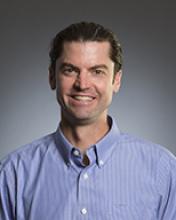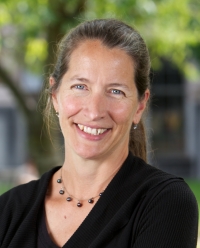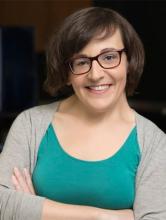5 College and Career Pathways
Welcome to the last day (Day Five) of the Virtual REACH Program. Now that you have learned more about neuroscience, neural engineering, and neuroethics, you may be wondering how to get into this field. Today you will see some profiles of different people involved with the Center for Neurotechnology to better understand the different pathways you can take to enter these exciting careers working at the cutting-edge of science and technology. You will also hear from Dave Wolczyk, Director of the University of Washington Math Science Upward Bound (UW STEMsub) Program. So, have your college and career questions ready!
Part One: Profiles of Experts Working in Neural Engineering & Neuroscience
We have included profiles of several CNT faculty members with expertise spanning computer science, neurophysiology, neuroscience, bioengineering, and electrical engineering. For each profile, follow the link to each person’s lab page to read more about their research, background, and the members of their lab.
Dr. Rajesh Rao

B.S., Computer Science, University of Rochester
Ph.D., Computer Science, University of Rochester
Postdoc, Computer Science, Salk Institute
Current position: Professor of Computer Science and Engineering and Electrical and Computer Engineering
Dr. Chet Moritz
B.S., Zoology; University of Washington

Ph,D., Biomechanics, University of California, Berkeley
Postdoc, Neurophysiology, University of Colorado, Boulder
Postdoc, Neuroscience, University of Washington Seattle
Current Position: Associate Professor, Department of Electrical & Computer Engineering, Department of Rehabilitation Medicine and Department of Physiology & Biophysics(Joint)
Dr. Sara Goering
B.S., Psychology, University of Illinois, Urbana-Champaign

Ph.D., Philosophy, University of Colorado, Boulder
Current Position: Associate Professor, Department of Philosophy
Dr. Amy Orsborn
B.S., Engineering/Physics, Case Western Reserve University
Ph.D., Bioengineering, UC Berkeley/UC

San Francisco
Postdoc, Neuroscience, New York University
Current Position: Assistant Professor, Department of Electrical & Computer Engineering and Department of Bioengineering
Part Two: Pathways Toward a Career in Neurotechnology
After looking through the lab pages of the faculty members profiled above, you might be wondering how did they get to be experts in their field? What pathways did they take through college and their career to get to where they are today? One thing you might have noticed this week–and even in the profiles above–is the incredibly interdisciplinary nature of the field of neurotechnology. To design, build, develop, test, implement, and study innovative neurotechnologies takes teams of people who bring diverse forms of expertise across fields. You might feel like you have a sense of what it might be like to be a doctor, pharmacist, nurse, or physical therapist. But…what is it like to be a neuroscientist or a neural engineer?
Read This!
Think about your own interest in neurotechnology. What kind of career might be a good match for you? Explore the resources below, as they interest you. Alternatively, you can also perform an internet search to learn about a particular career of interest.
- Read “What Engineers Do When They are Doing Engineering” by Dr. Lise Johnson
- Science Buddies provides information on a variety of STEM careers. Learn more about what it takes to become a biomedical engineer or a neurologist
- Explore engineering careers, computer science careers, science careers, and health sciences careers at the Bureau of Labor Statistics
- Scan this list of Jobs for Neuroscientists
- Read A Career in Neuroscience: A Game of “Survivor?”
- Read Another Day, Another Neuron
As you can see from the profiles of Drs. Rao, Moritz, Goering and Orsborn, there are many different academic routes you can take on the road to the career in neural engineering and neuroscience. At the University of Washington, popular majors for students interested in “neuro-careers” are bioengineering, neuroscience, computer science, electrical engineering, biology, and mechanical engineering. The UW also offers an undergraduate minor in neural computation and engineering.
Most undergraduate students go on to graduate school programs in neuroscience, bioengineering, computer science, physiology, or electrical engineering. Some students even attend joint programs for a graduate degree (Ph.D.) and medical degree (M.D.). Other students go into private industry at a company or into government labs such as those at the National Institutes of Health. Jobs in education, social sciences research, and journalism are also possibilities for people with a background in neuroscience or neural engineering.
Try This!
Visit the departmental websites for various undergraduate majors at the UW and see what research and courses interest you most. It doesn’t matter if you plan to attend college at the UW or somewhere else, exploring major requirements will give you a sense of the coursework and requirements for different undergraduate majors. Explore the department(s) that interest you most:
Bioengineering Computer Science
Electrical and Computing Engineering Neuroscience
Biology Mechanical Engineering
Interdisciplinary Minor in Neural Computation and Engineering
Try This!
After exploring the UW undergraduate majors, respond to this question on a Padlet:
- What department(s) did you explore? What surprised you most about the undergraduate coursework and/or requirements?
Post your responses to this Undergraduate Majors Padlet. See what other VRP participants have posted as well. You can “favorite” the ones you agree with or find interesting.
Then, hit the “back” arrow on your web browser to return to this chapter and keep reading.
The fields of neuroscience and neural engineering need experts who have variety of science, engineering, computer science, medical, and mathematics backgrounds. Students can take many different pathways to a career in neuroscience and neural engineering. Here is a sampling of possibilities:
- Audiology and speech sciences / Biomechanics
- Biomedical engineering or bioengineering / Biophysics
- Computational mathematics / Computer science
- Electrical engineering / Materials science / Mechanical engineering
- Microsystems engineering / Nanosystems engineering / Neuroanatomy
- Neurobiology / Neuroethics / Neurological surgery
- Neurology / Physiology / Rehabilitation medicine
- Robotics engineering / Tissue engineering
- Disability studies / Bioethics / Neuroethics
Getting Research Experience
Most students who go on to become neuroscientists and neural engineers start their research careers while they are still in college. University professors (lab directors) have active research programs and usually employ undergraduate students, graduate students, post-doctoral fellows, and technicians. Often research positions for undergraduate students are not advertised. Instead, a student must approach a professor by email, in-person, or by phone to ask about the availability of a research position. You might also ask fellow students who are already working in research labs for an introduction to the lab director.
We strongly recommend that after your first or second year in college that you look into the summer National Science Foundation (NSF) Research Experience for Undergraduates (REU) program. REU programs are 10-week summer research programs at universities all over the country in all science, technology, engineering, and math fields. The REU program will pay for your travel to and from the host university, your summer housing, and a stipend (about $6,000 for the entire program). Applications are usually due in January or February, so check out the NSF REU web site in the fall so you do not miss a deadline.
The Center for Neurotechnology hosts summer research experiences for high school students, undergraduates, veterans of the armed forces, and middle/high school teachers (although, many of these programs were temporarily suspended for Summer 2020). Peruse the articles below to provide you some insights into what it is like to be a student researcher in the labs of the CNT.
Watch This!
- Have you wondered what types of job are available to someone with a degree in neuroscience?
Read This!
Peruse these stories about educational opportunities at the Center for Neurotechnology:
- Young Scholars Program provides an authentic research experience for high school students
- From neuroscience lectures to conversations with researchers: YSP-REACH introduces high school students to neural engineering
- From active duty to the research lab: The CNT provides opportunities and mentorship for veterans
- REU supports undergraduate student research, mentorship and growth
- Breaking the glass ceiling: Women’s career mentoring lunch facilitates conversation about being a woman in STEM
- From classroom to industry: Students in Neural Engineering Tech Studio design user-centered devices
In conclusion, now is a good time to start exploring college majors and career pathways of interest to you.
Citations
Faculty bio photographs from University of Washington.

